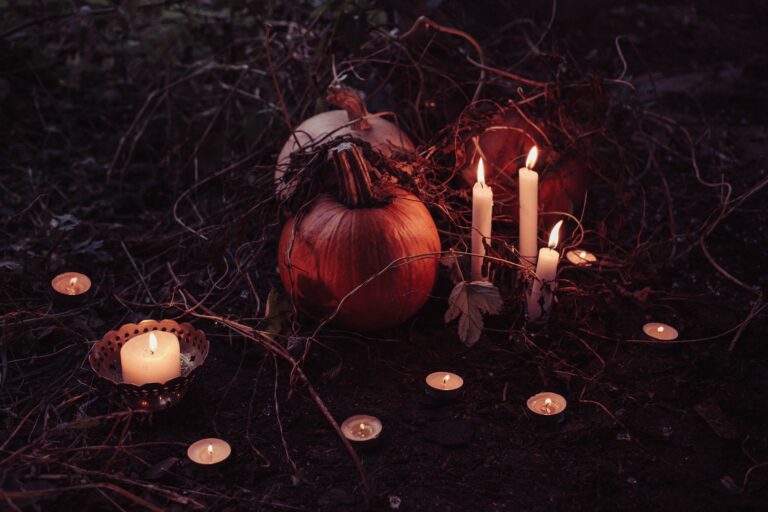With Halloween just a few short days away, it’s beginning to look a little spooky on people’s doorsteps. Or…not.
There are neighbors who go all out for Halloween, prepared for any and every trick-or-treating child. There are friends who gather around the TV to watch horror movies on the night of the 31st. There are young adults who would much rather just celebrate fall at Hobby Lobby without getting into the scary stuff. There are parents and families who refuse to entertain Halloween at all because of their faith.
Whatever camp (or two, or three) you may fall into, Halloween is approaching one way or another. And there are some things we should know before it does.
What we have come to know as “Halloween” originated farther back than I imagine most people realize. Halloween originated with the Celtic people of Ireland who celebrated an ancient festival called “Samhain”. The Celts celebrated their New Year on November 1st, meaning that this festival marked not only the end of spring and the beginning of the cold winter months, but also the transition out of the “things of old” from the last year.
On this night, the Celts believed that ghosts could “return” to the earth… but they weren’t necessarily scary. The ghosts caused some annoying trouble and damaged people’s crops. The fact that these ghosts were believed to exist on this night also meant that priests found it easier to make predictions about the next year to come.
That tradition of the “Samhain” feast continued until Christianity reached the Celts and then those pagan traditions began to fizzle out. The name “Halloween” originated from “All Saints Day”, also called “All Hallows”. It was a Christian celebration taking place on November 1 in which a time was set aside to remember saints and martyrs who had passed. This is not to be confused with “All Souls Day”, which was celebrated on November 2 as a continuation of All Saints Day. This day consisted of praying for the souls who were considered to be in Purgatory and waiting to enter Heaven. In the Catholic tradition, Purgatory is a place in which the souls of Believers must spend time atoning for their sins, or getting “cleansed” of their sin before entering Heaven.
The word “hallow” originally came from the Middle English word “halwen”, which meant “to hallow” or “to sanctify”. We can still find evidence of this word’s proper meaning in The Lord’s Prayer found in Matthew 6: “Our Father who art in Heaven, hallowed be thy name”.
Thus, our term of “Halloween” was coined when October 31st was called “All Hallows Eve”, as it was the day before “All Hallows” (or All Saints) Day on November 1. By the 20th century, Halloween was widely celebrated across North America.
Some of our most beloved traditions came from very different origins than what we know them as today. For instance, bobbing for apples really had nothing to do with the spookiness of Halloween. It revolved around romance and women trying to discover their potential future with a male suitor. The number of times a woman would have to try and bite the apple corresponded with how (or if) their relationship would flourish. Likewise, it was common in ancient Ireland and Scotland, around this time of year, for people to go from door to door and put on little performances for treats or food in return. This has flourished into our modern-day tradition of Trick-or-treating.
So, whether you choose to don your doorstep with pumpkins or you’re just anxiously waiting to deck the halls, maybe now you know a little more about the history of Halloween than you did last October.




